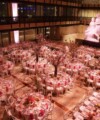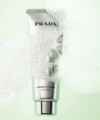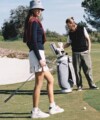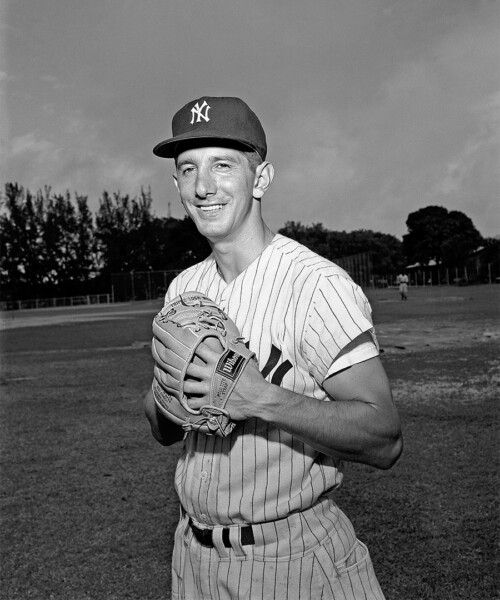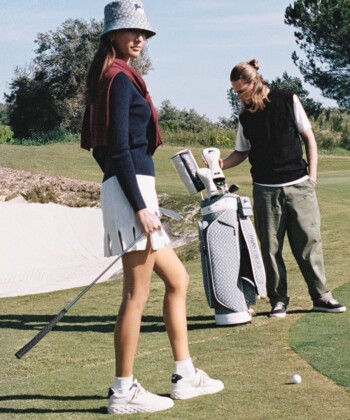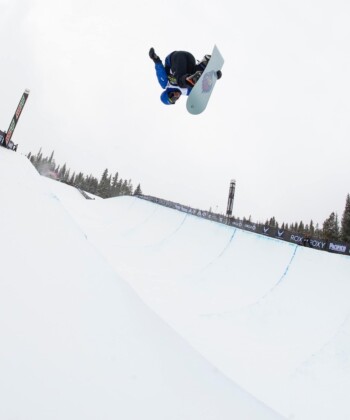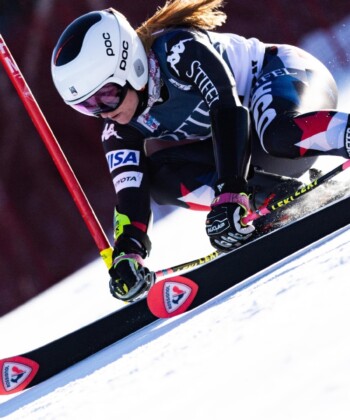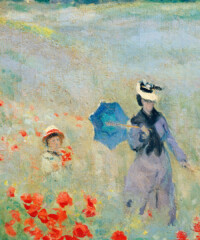About 10 days into the 1976 spring training, Baseball Commissioner Bowie Kuhn abruptly shortened Steinbrenner’s suspension and reinstated the owner immediately. Billy’s life as Yankees manager would never be the same. He knew that now Steinbrenner could deliver his speeches in person—and there would be no stop button to push.
“George just loved to be seen and to be involved, and truthfully, I think he thought he was helping,” said Piniella. “At first I think it just amused Billy. George would come strutting by and say something like, ‘OK, Piniella, now let’s whip that bat around.’ Or he would watch the infielders and shout, ‘Step lively boys.’
“And Billy would be standing there with his hands in his back pocket biting his lip. Then George would walk to the next field and Billy would wait a minute and say, ‘You heard the man, step lively boys.’ And everyone would start laughing, turning away so no one could see.”
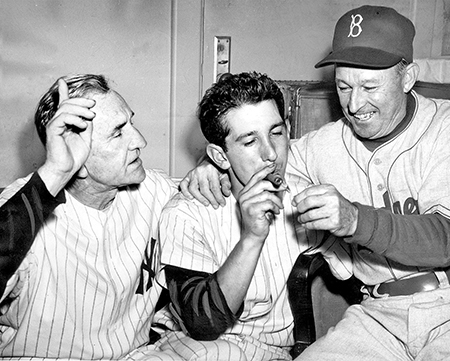
Martin’s mentor Casey Stengel (left) celebrates with Martin (center) and Dodgers’ Chuck Dressen
But Steinbrenner was not just a buffoon the Yankees appeased. The players appreciated that he spent money on the roster. One of Steinbrenner’s first acts was to upgrade the Yankees’ travel arrangements. The team now had newer jets to transport them around the continent. Whatever the city, they stayed in the best hotels.
“George was obsessed with the Yankees always looking first class,” said Bill “Killer” Kane, the Yankees traveling secretary from 1976 to the mid-1980s. “So we had to have the best planes, the best buses, the best bus drivers, the best made uniforms. Billy, meanwhile, wanted to make sure the players’ lives were easy and that they felt special. One of the first things he told me was that he wanted Chivas as the only Scotch served on the planes when we traveled. We had good food, too—shrimp cocktail, steak, you name it.”
Kane, who smoked unfiltered Lucky Strikes and closed many a hotel bar, was in a unique position to assess the thorny, benevolent, multifarious relationship between Billy and George Steinbrenner. “They had a lot of affection for each other,” he said in 2012. “They were like two cousins who loved each other but couldn’t stop fighting. They rubbed each other the wrong way without even trying.” But Steinbrenner had brought Billy in to deliver the Yankees a pennant, and for the time being, he would get out of the way.
Before the opening game of the 1976 season in Milwaukee, Billy assembled the team for a clubhouse speech.
“He didn’t say much,” said Piniella. “The first thing was ‘We’re winning the division this year and then we’re winning the pennant.’
“Then the next thing he said was, ‘The only way that doesn’t happen is if you don’t believe in what I’m going to ask you to do. We’re going to scare the shit out of the whole league if you buy into what I’m trying to do. Trust me, you do that, and we’ll win.’ And then he walked out the clubhouse door and headed for the dugout.“
The second game of the 1976 baseball season sealed Martin’s hold on the players. Milwaukee had just won the game on a ninth-inning grand slam and the dejected Yankees began to trudge off the field. But Billy, eyes narrowing, roared out from the dugout and headed for first base umpire Jim McKean.
“You called time out just before the pitch,” Billy was yelling.
McKean had no response. Billy started screaming, “I saw you raise your hand—you were calling time out.”
After conferring with the other umpires—and with the crowd watching uneasily—McKean conceded. No one, it appeared, had seen the gesture except Billy, who always claimed he could see the entire field in one glance. But the grand slam was nullified. The game resumed, and the Yankees won, 9-7.
After the game, Billy nodded at his Yankees and said to Kane: “I’ve got them now.”
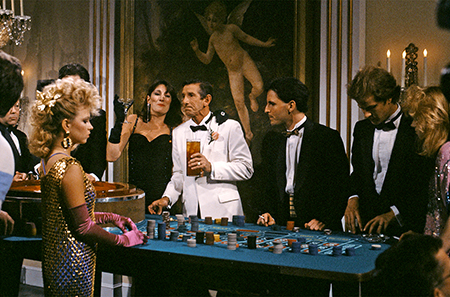
Martin cavorting with Anjelica Huston on SNL, 1986
Day by day, Billy challenged the rest of the American League to stop his refurbished, hard-charging Yankees. They ran the other teams ragged, stealing bases with abandon. Slides into bases were hard and tags were forceful. Pitchers weren’t afraid to throw inside. Billy worked the umpires from the dugout ceaselessly.
“Billy just kept everyone on edge,” trainer Gene Monahan said. “Right from the first inning, if he didn’t like an umpire’s call, he’d be on him. He’d yell, ‘OK, pal, that’s it. You’re off the Christmas card list. You owe me one now. You don’t get back on the Christmas card list until I get that call back.’ ”
Most of the American League still considered the Boston Red Sox the team to beat. The Red Sox came to Yankee Stadium with the swagger of champions. In the first game of the series, a violent collision at home plate evolved into a brawl so vicious the Boston starting pitcher ended up with torn shoulder ligaments. The Yankees had a 10-game lead over the Red Sox by the Fourth of July and never looked back.
The team drew two million fans for the first time since 1950, Billy’s rookie year. The boost in attendance was in part due to what everyone now called the new Yankee Stadium. It had some features rare at the time, like escalators to whisk fans to their upper deck seats and air-conditioned dugouts. The Yankees felt like kings in their new palace.
Manhattan’s elite was not left out. From Billy Joel to Cheryl Tiegs to Gloria Vanderbilt, the bold-print set made regular appearances at Yankees games. It was the surest way to get into the gossip pages of the city’s tabloids. People did anything to be near the Yankees and the center of it all was No. 1: Billy Martin.
After the team clinched the Eastern division and returned to New York from
Detroit, more than 1,000 fans awaited them at LaGuardia Airport. One woman held aloft a sign that said, “Today is the First Day of the Second Yankees Dynasty.”
The Yankees’ American League championship series against the Kansas City Royals underscored the cultural divide in America. The Yankees were the moneyed blueprint of the future and Steinbrenner was the ultimate wealthy urban bully. He, and everything his team stood for, was reviled in Middle America.
“It was like Billy said, ‘Watch this, I’m going to turn the pressure up a notch,’ ” Piniella said. “And he did.” When the Kansas City fans jeered Billy, he doffed his cap and blew kisses. A fierce, bitter struggle unfolded with the teams converging on Yankee Stadium October 14th for the fifth and final game of the series. An early Yankee lead was erased by an eighth inning home run by Kansas City’s George Brett, which tied the game. Billy had his pitcher hurl his next pitch at the head of the subsequent Kansas City batter. The game was not over.
Leading off the ninth inning, in what has become an indelible moment in New York baseball history, Yankee first baseman Chris Chambliss lofted an inside fastball over the right field fence to win the game and series. Fans flooded the field, knocking Chambliss down before he could reach second base. After retreating to the dugout, Chambliss needed a 10-man police escort to fight his way back onto the field so he could touch home plate.
Throughout the city, fans celebrated. Times Square filled like it was New Year’s Eve. Inside Yankee Stadium, in front of a national television audience, Billy doused George Steinbrenner with a bottle of champagne.
Emotionally spent, the Yankees were swept by the Cincinnati Reds in the 1976 World Series. But the team did win the series in 1977, beating the Los Angeles Dodgers after such an incendiary summer that was turned into a book called The Bronx Is Burning. A year later, Billy Martin’s feuds with both Steinbrenner and his new star player Reggie Jackson raged. Billy was ultimately forced to resign the only job he ever wanted. He would be re-hired and dismissed by Steinbrenner another four times. A fifth comeback for Billy was in the works when he died.
But in the summer of 1976, Martin and Steinbrenner, dominant sports personalities, peaceably combined to rebuild a storied New York institution. The Yankees have since won seven world championships, restoring the luster to a celebrated franchise.
It began with a phone call to a fishing lodge in western Colorado.


